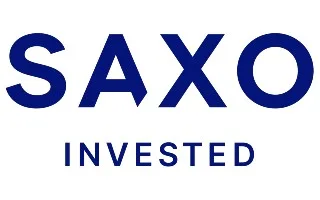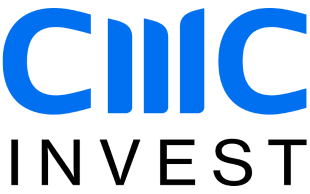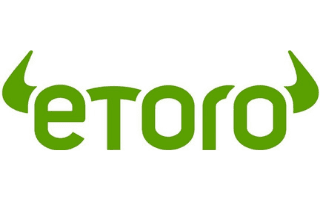₩76300
Samsung (005930) is a South Korean electronics company that offers its products and services worldwide. These include televisions, phones, semiconductor products, OLED panels, medical equipment and more. Samsung was founded in 1938 and is listed on the Korea Exchange.
How to buy shares in Samsung
- Compare share trading platforms. To buy shares in a company that's listed outside of Australia, you'll need to find a trading platform that offers access to global stock markets. If you're just starting out, look for a platform with low brokerage and foreign exchange fees.
- Open and fund your brokerage account. Complete an application with your personal and financial details, like your ID and tax file number. Fund your account with a bank transfer, credit card or debit card.
- Search for Samsung. Find the share by name or ticker symbol: 005930. Research its history to confirm it's a solid investment against your financial goals.
- Purchase now or later. Buy today with a market order or use a limit order to delay your purchase until Samsung reaches your desired price. To spread out your risk, look into dollar-cost averaging, which smooths out buying at consistent intervals and amounts.
- Decide on how many to buy. At last close price of KRW₩₩78600, weigh your budget against a diversified portfolio that can minimise risk through the market's ups and downs. You may be able to buy a fractional share of Samsung, depending on your broker.
- Check in on your investment. Congratulations, you own a part of Samsung. Optimise your portfolio by tracking how your stock — and even the business — performs with an eye on the long term. You may be eligible for dividends and shareholder voting rights on directors and management that can affect your stock.
Our top pick for
US stocks

Our top pick for
Best for beginner

Our top pick for
Dividend investing

Samsung stock price (KO:005930)
Use our graph to track the performance of 005930 stocks over time.Samsung shares at a glance
| Open | ₩77300 |
|---|---|
| High | ₩77500 |
| Low | ₩76300 |
| Close | ₩76300 |
| Previous close | ₩78600 |
| Change | ₩-2300 |
| Change % | -2.9262% |
| Volume | 15,549,134 |
| 52-week range | ₩62985.6768 - ₩86000 |
|---|---|
| 50-day moving average | ₩76688 |
| 200-day moving average | ₩72392.5 |
| Target price | ₩100678 |
| PE ratio | N/A |
| Dividend yield | ₩1805 (2.26%) |
| Earnings per share (TTM) | N/A |
Join the world's biggest social trading network now!
- $0 brokerage for AU, US, Hong Kong and European stocks
- Trades starting from $50
- Fractional shares
- Copy top traders
Compare trading platforms to buy Samsung shares
Is it a good time to buy Samsung stock?
The technical analysis gauge below displays real-time ratings for the timeframes you select. However, this is not a recommendation. It represents a technical analysis based on the most popular technical indicators: Moving Averages, Oscillators and Pivots. Finder might not concur and takes no responsibility.
Samsung price performance over time
Historical closes compared with the last close of ₩76300
| 1 week (2024-04-17) | -3.30% |
|---|---|
| 1 month (2024-03-25) | -2.43% |
| 3 months (2024-01-25) | 2.97% |
| 6 months (2023-10-25) | 12.21% |
| 1 year (2023-04-25) | 19.97% |
|---|---|
| 2 years (2022-04-25) | 15.08% |
| 3 years (2021-04-23) | -7.85% |
| 5 years (2019-04-25) | 70.88% |
Is Samsung under- or over-valued?
Valuing Samsung stock is incredibly difficult, and any metric has to be viewed as part of a bigger picture of Samsung's overall performance. However, analysts commonly use some key metrics to help gauge the value of a stock.
Samsung's PEG ratio
Samsung's "price/earnings-to-growth ratio" can be calculated by dividing its P/E ratio by its growth – to give 0.7442. A low ratio can be interpreted as meaning the shares offer better value, while a higher ratio can be interpreted as meaning the shares offer worse value.
The PEG ratio provides a broader view than just the P/E ratio, as it gives more insight into Samsung's future profitability. By accounting for growth, it could also help you if you're comparing the share prices of multiple high-growth companies.
Samsung's EBITDA
Samsung's EBITDA (earnings before interest, taxes, depreciation and amortisation) is KRW₩44,033.5 billion (£25.6 billion).
The EBITDA is a measure of a Samsung's overall financial performance and is widely used to measure stock profitability.
Samsung financials
| Revenue TTM | KRW₩258,935.5 billion |
|---|---|
| Operating margin TTM | 4.17% |
| Gross profit TTM | KRW₩112,189.6 billion |
| Return on assets TTM | 0.91% |
| Return on equity TTM | 4.31% |
| Profit margin | 5.59% |
| Book value | N/A |
| Market capitalisation | KRW₩525.1 trillion |
TTM: trailing 12 months
Samsung's environmental, social and governance track record
Environmental, social and governance (known as ESG) criteria are a set of three factors used to measure the sustainability and social impact of companies like Samsung.
When it comes to ESG scores, lower is better, and lower scores are generally associated with lower risk for would-be investors.
Samsung's total ESG risk score
Total ESG risk: 32.93
Socially conscious investors use ESG scores to screen how an investment aligns with their worldview, and Samsung's overall score of 32.93 (as at 12/31/2018) is nothing to write home about – landing it in it in the 51st percentile of companies rated in the same sector.
ESG scores are increasingly used to estimate the level of risk a company like Samsung is exposed to within the areas of "environmental" (carbon footprint, resource use etc.), "social" (health and safety, human rights etc.), and "governance" (anti-corruption, tax transparency etc.).
Samsung's environmental score
Environmental score: 9.05/100
Samsung's environmental score of 9.05 puts it squarely in the 7th percentile of companies rated in the same sector. This could suggest that Samsung is a leader in its sector terms of its environmental impact, and exposed to a lower level of risk.
Samsung's social score
Social score: 13/100
Samsung's social score of 13 puts it squarely in the 7th percentile of companies rated in the same sector. This could suggest that Samsung is a leader in its sector when it comes to taking good care of its workforce and the communities it impacts.
Samsung's governance score
Governance score: 17.38/100
Samsung's governance score puts it squarely in the 7th percentile of companies rated in the same sector. That could suggest that Samsung is a leader in its sector when it comes to responsible management and strategy, and exposed to a lower level of risk.
Samsung's controversy score
Controversy score: 4/5
ESG scores also evaluate any incidences of controversy that a company has been involved in. Samsung scored a 4 out of 5 for controversy – the second-lowest score possible, reflecting that Samsung has a damaged public profile.
Environmental, social, and governance (ESG) summary
Samsung Electronics Co Ltd was last rated for ESG on: 2019-01-01.
| Total ESG score | 32.93 |
|---|---|
| Total ESG percentile | 51.44 |
| Environmental score | 9.05 |
| Environmental score percentile | 7 |
| Social score | 13 |
| Social score percentile | 7 |
| Governance score | 17.38 |
| Governance score percentile | 7 |
| Level of controversy | 4 |
Samsung share dividends
Dividend payout ratio: 50.82% of net profits
Recently Samsung has paid out, on average, around 50.82% of net profits as dividends. That has enabled analysts to estimate a "forward annual dividend yield" of 2.26% of the current stock value. This means that over a year, based on recent payouts (which are sadly no guarantee of future payouts), Samsung shareholders could enjoy a 2.26% return on their shares, in the form of dividend payments. In Samsung's case, that would currently equate to about ₩1805 per share.
Samsung's payout ratio would broadly be considered high, and as such this stock could appeal to those looking to generate an income. Bear in mind however that companies should normally also look to re-invest a decent amount of net profits to ensure future growth.
The latest dividend was paid out to all shareholders who bought their shares by 26 December 2023 (the "ex-dividend date").
Have Samsung's shares ever split?
Samsung's shares were split on a 50:1 basis on 15 May 2018. So if you had owned 1 share the day before the split, the next day you would own 50 shares. This wouldn't directly have changed the overall worth of your Samsung shares – just the quantity. However, indirectly, the new 98% lower share price could have impacted the market appetite for Samsung shares which in turn could have impacted Samsung's share price.
Samsung share price volatility
Over the last 12 months, Samsung's shares have ranged in value from as little as KRW₩62985.6768 up to KRW₩86000. A popular way to gauge a stock's volatility is its "beta".
Beta measures a share's volatility in relation to the market. The market (KO average) beta is 1, while Samsung's is 0.848. This would suggest that Samsung's shares are less volatile than average (for this exchange).
Samsung overview
Samsung Electronics Co., Ltd. engages in the consumer electronics, information technology and mobile communications, and device solutions businesses worldwide. The company offers smartphones, tablets, watches, and accessories; TVs, projectors, and sound devices; home appliances, including refrigerators, washing machines and dryers, vacuum cleaners, cooking appliances, dishwashers, air conditioners, and air purifiers; monitors and memory storage products; displays, and smart and LED signages; and other accessories. It also engages in venture capital investments, cloud services, network devices installation, semiconductor equipment maintenance services, digital advertising platforms, marketing, consulting, connected services, logistics, financing, and software design activities; toll processing of display panels and semiconductors; development and sale of network solutions; manufactures semiconductors and food; provision of repair services for electronic devices; and development and supply of semiconductor process defect and quality control software, as well as digital televisions, foundry, system large scale integration, connected car systems, audio and visual products, enterprise automation solutions, and connected services. Samsung Electronics Co., Ltd. was incorporated in 1969 and is based in Suwon, South Korea.
Samsung in the news

Top 20 Largest Countries In Asia By Area In 2024
Samsung poised to win over $6 bln from US for expanded investment, Bloomberg News reports

Samsung Poised to Win Over $6 Billion for Expanded US Investment
Frequently asked questions
More guides on Finder
-
How to invest in the Sun Silver IPO
Everything we know about the Sun Silver IPO, plus information on how to buy in.
-
How to invest in the Tasmea Limited IPO
Everything we know about the Tasmea Limited IPO, plus information on how to buy in.
-
How to buy Far Northern Resources shares
Steps to owning and managing Far Northern Resources shares.
-
What are the best commodity ETFs on the ASX in 2024?
Commodity ETFs can be used to hedge against inflation. Here's what they do, why they should be on your watchlist and how they can help your portfolio.
-
Best performing stocks on the ASX in 2024 (Updated weekly)
Looking for the best performing stocks in Australia? We update this list weekly.
-
How to buy Gol Linhas Aereas Inteligentes SA ADR (GOL) shares in Australia
Steps to owning and managing Gol Linhas Aéreas Inteligentes SA shares from Australia.
-
Superhero review: ASX and US share trading app
Trade ASX stocks and ETFs with a $2 brokerage fee and a low minimum investment of just $10.
-
The cheapest ETFs on the ASX
These ETFs have the lowest fees on the market, but does that make them the best?
-
Alternatives to CommSec: 7 trading platforms to consider
You've heard of CommSec but how does it stack up to the likes of IG, CMC Invest and other players in the market?
-
Westpac Share Trading Account review
Westpac Share Trading allows you to take control of your investments. Find out if its right for you.
Ask a Question
